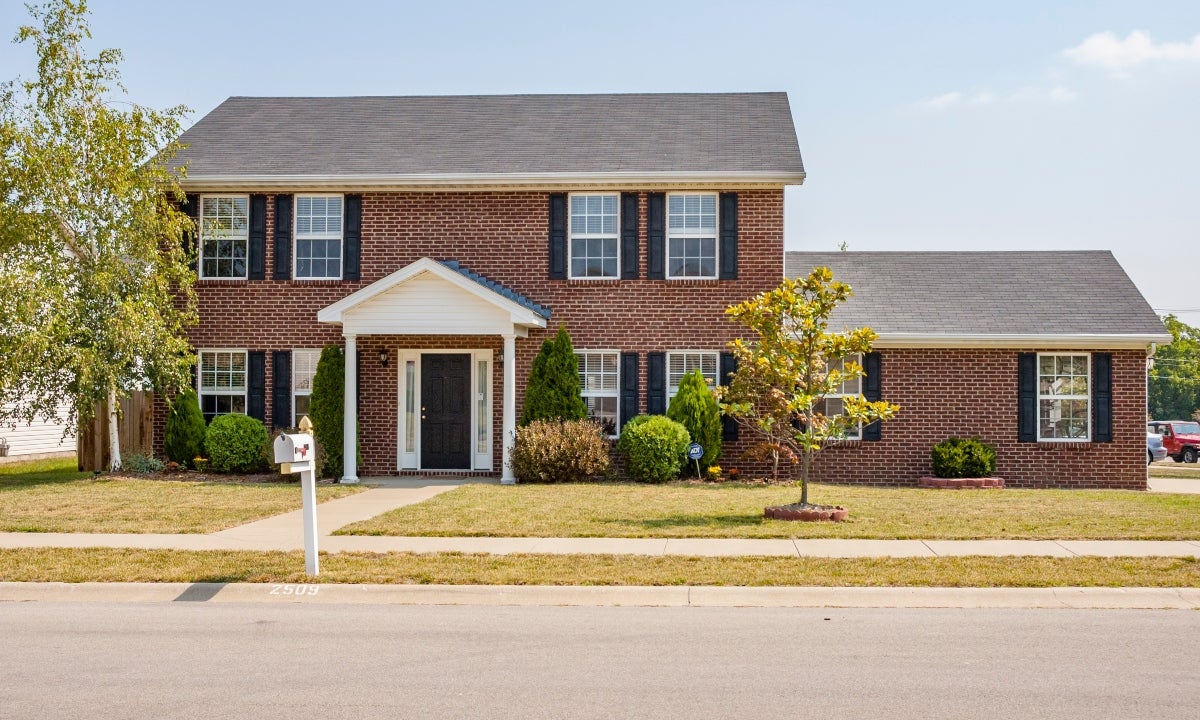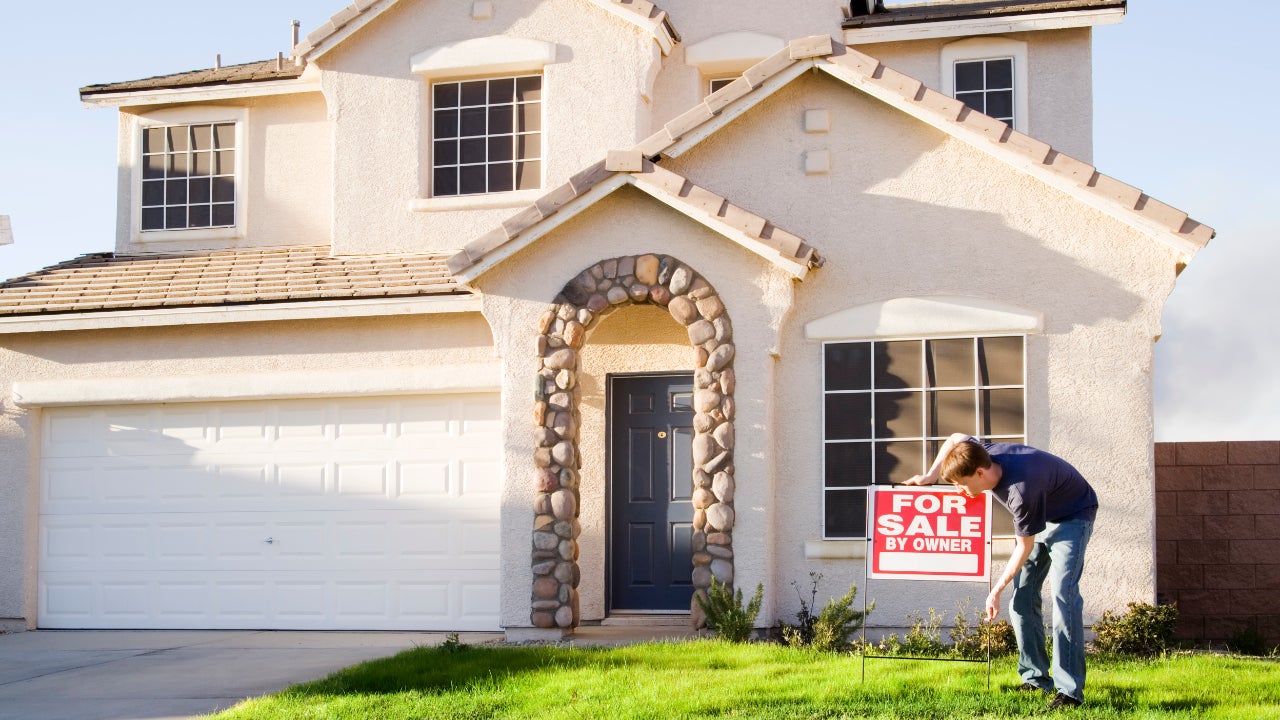Buying a foreclosed home: A step-by-step guide

Key takeaways
- Foreclosures occur when a lender takes back a property from an owner who has defaulted on their mortgage payments.
- Buying a foreclosed home can offer good value, but it also comes with a complicated process and potential for extensive repairs.
- Buyers considering a foreclosed property should thoroughly assess its condition and be prepared for a competitive bidding process.
During the first two years of the pandemic, many distressed homeowners were able to remain in their homes due to state and federal aid programs — but most of these programs have now ceased, and foreclosures have restarted. While the foreclosure rate is much lower today than it was in pre-pandemic years, data from analytics firm ATTOM shows that there were still more than 320,000 foreclosure filings in the U.S. in 2024.
Buying a foreclosed home can potentially score you a great deal during a time when deals are hard to find. In many cases it also means you’re benefiting from someone else’s misfortune, which can be a deal-breaker for some people. And the purchase process is more nuanced than buying a traditional listing. If you’re wondering how to go about it, consider this your primer.
What is a foreclosure?
Foreclosures happen when a lender takes back a property from an owner who has fallen behind on payments and defaulted on their mortgage. Lenders will then try to recoup as much of their investment as possible by selling the foreclosed home, often for less than it might be worth. In the right situation, “you are getting something below market value because the bank is motivated to get the home sold,” says agent Rose Sklar of the Sklar Team at Coldwell Banker in Weston, Florida.
How to buy a foreclosed home
Buying a foreclosed home can be a great financial deal, but it’s more complicated than a conventional real estate transaction and requires careful research and preparation. Here’s a step-by-step guide for how to do it right.
1. Find an experienced real estate agent
Foreclosures can be difficult to find and price, so finding a real estate agent who is knowledgeable about the foreclosure process can help best represent your interests and keep the transaction moving. Look for Realtors who have specialized real estate training in this area, such as the Certified Distressed Property Expert (CDPE) or Short Sales and Foreclosure Resource (SFR) designations.
Buyers can also choose to work directly with a bank instead of using a buyer’s agent. This can be risky, though, as you won’t have a seasoned pro (or an expert negotiator) by your side: “Buyers feel more secure when they are [directly] represented,” says John Soffee, a Realtor in Richmond, Virginia.
Types of foreclosure sales
Your agent can guide you through various types of distressed sales. These include:
- Preforeclosures, in which a buyer bails out a seller before the bank takes the property.
- Short sales, in which the borrower owes more than the home is worth and the bank agrees to forgive some of the debt.
- Public auctions, in which bidders have a chance to make offers on foreclosed properties.
- Bank-owned homes, in which the lender now has ownership. You may hear these referred to as REO, or “real estate owned.”
Where to find foreclosure sales
- Some lenders, including Bank of America and Citibank, post their bank-owned properties online.
- The U.S. Department of Housing and Urban Development (HUD) also lists its inventory of foreclosures.
- So does Fannie Mae, on its HomePath portal.
- Foreclosure listings can also turn up amid traditional listings on the local MLS, so ask your agent to look out for them, too. They can go fast, so be prepared to move quickly.
2. Get a preapproval letter
Foreclosures often get scooped up by real estate investors who pay cash. But don’t let that discourage you; if you can’t afford to go up against the all-cash buyers, many lenders will help you find the right financing to buy a foreclosed home. You’ll want a mortgage preapproval letter in hand when you make an offer on a foreclosure, though. “It separates the lookers from the buyers,” Soffee says.
A preapproval details how much money you’ll likely be able to borrow based on the lender’s thorough assessment of your finances, including credit score and income. “It’s always good to be prepared,” says Sklar.
You’ll also want to consider what kind of loan to get preapproved for. Foreclosed properties often require repairs or upgrades, and an FHA 203(k) loan can help. These loans allow buyers to finance repairs up to a certain dollar amount.
3. Determine how much to offer
Choosing the right price to offer is as much an art as it is a science. Your agent can analyze the local market by looking at comparable properties, or “comps” — that is, the prices of nearby similar homes that have sold recently.
Soffee says he runs a comparative market analysis, or CMA, from the last 180 days and evaluates several factors, including the pace of home sales and tax assessment history. If you’re up against cash offers, this information can help ensure your offer is a competitive one.
Your lender will require a professional appraisal to assess the home’s value, so keep that in mind when making your offer as well. If there’s a shortfall between your offer and the home’s appraised value, you might have to make up the difference in price.
4. Bid higher if other foreclosures are selling quickly
When a foreclosure comes on the market there is frequently hot competition, so be prepared to bid fast and high. There’s no exact formula on what the lender’s bottom line will be, so if foreclosed homes in your area are selling quickly, it’s important to work with your agent to craft a strong offer, backed up by your preapproval letter if obtaining a mortgage. Foreclosures are typically already discounted, so an offer that’s too low might be a non-starter.
Keep in mind that the type of house and location matter, so some homes might sell faster than others. Just as with a traditional sale, in competitive markets, you might need to offer full asking price (or slightly more if there are multiple bids) and keep contingencies to a minimum.
5. Be prepared for “as-is” condition
A foreclosure is usually sold “as-is.” This means that the seller is unlikely to make any repairs and does not guarantee the property’s condition — such as whether it has termite damage, structural issues or lead paint, for example. It’s smart to look for a foreclosed home on the lower end of your budget so you have room to increase your bids and pay for necessary repairs.
If you plan to buy a foreclosed home, be sure to get a home inspection so you know exactly what you’re in store for. An inspection isn’t required to buy a foreclosed home, but it can identify major issues the bank isn’t aware of. It will help you decide whether to move forward with the purchase or walk away from the deal — provided you’ve included a home inspection contingency in your contract. (In hot markets, buyers sometimes waive the inspection to make their bid more attractive, but that is very risky with an as-is purchase.)
Pros and cons of buying a foreclosed home
Deciding whether to buy a foreclosed home depends on a variety of factors, including your risk tolerance, the property’s potential reward, your financing and your ability to move quickly. Here are some pros and cons to consider.
Pros
- Good value: Foreclosed properties often sell for a substantial discount, especially in down markets. “The advantage of purchasing a foreclosure property is, in short, price,” says Soffee.
- Strong returns: If you find a well-priced foreclosure and perform repairs cost-effectively, your reward can be a property that’s worth more than you paid.
Cons
- Complicated process: Compared to a typical transaction, buying a distressed property requires more specialized knowledge.
- Extensive repairs: Struggling homeowners might ignore routine maintenance, so foreclosed properties often need a lot of work. The repair bills can be expensive.
- Stiff competition: Foreclosures are typically the purview of professional investors, and competing against them isn’t always easy.
FAQ
-
Yes. Foreclosure sales are often dominated by deep-pocketed real estate investors who pay cash, but that doesn’t mean it’s not possible to finance the purchase. Make sure the lender you work with understands the kind of property you’re looking to buy, though. Some loan products, such as the Federal Housing Administration’s FHA 203(k) loan, can be ideally suited for purchases that will need extensive repairs.
-
You don’t technically need a real estate agent to buy any home, foreclosed or not. But it’s smart to have an expert in your corner for this kind of transaction: Foreclosure sales are more complex than traditional sales, and working with a pro who understands the differences is a big benefit. A knowledgeable agent can protect your interests and provide market knowledge that you might not be aware of.
Why we ask for feedback Your feedback helps us improve our content and services. It takes less than a minute to complete.
Your responses are anonymous and will only be used for improving our website.
You may also like







